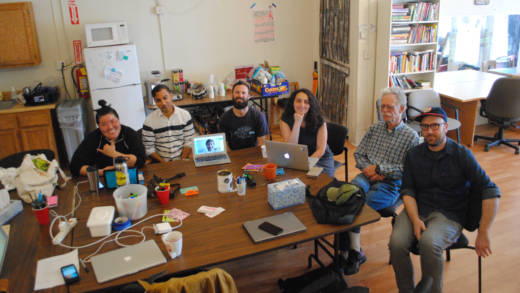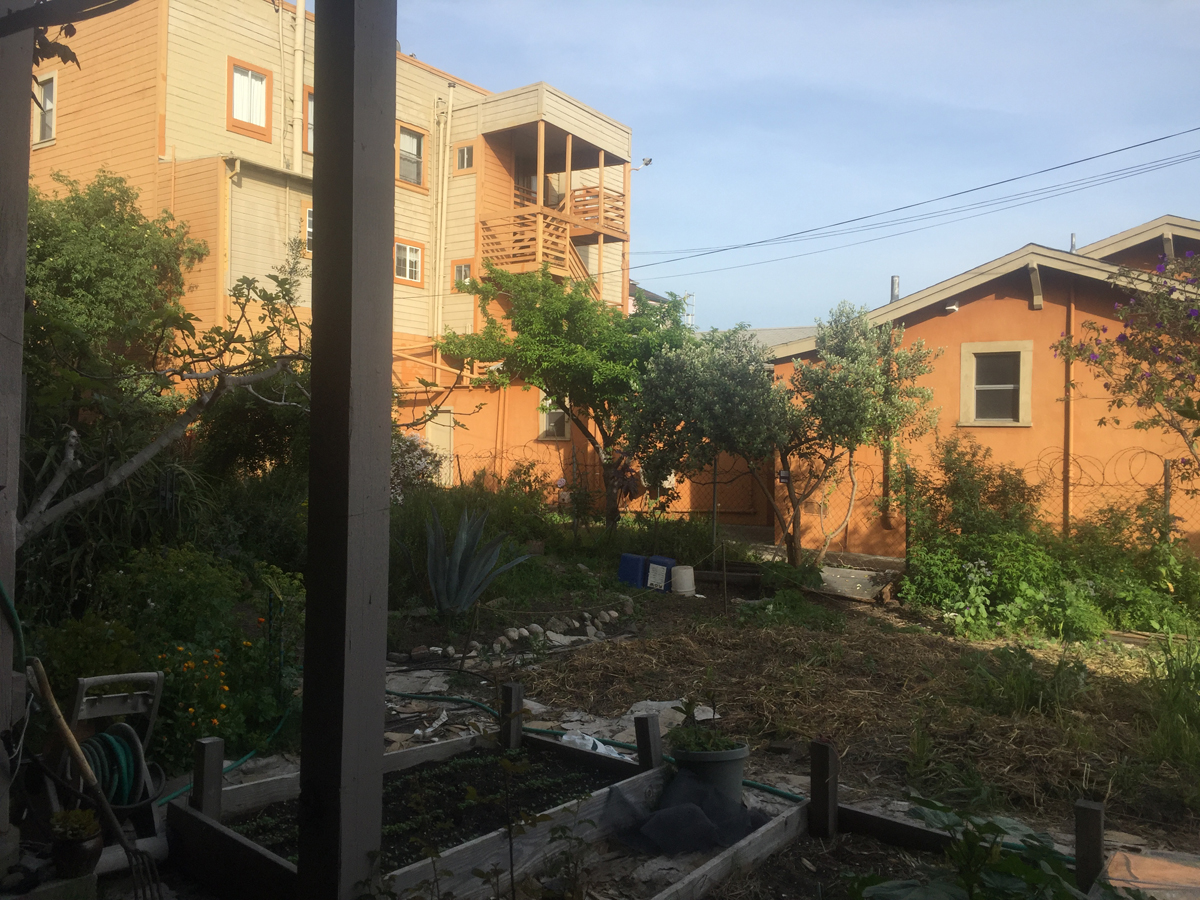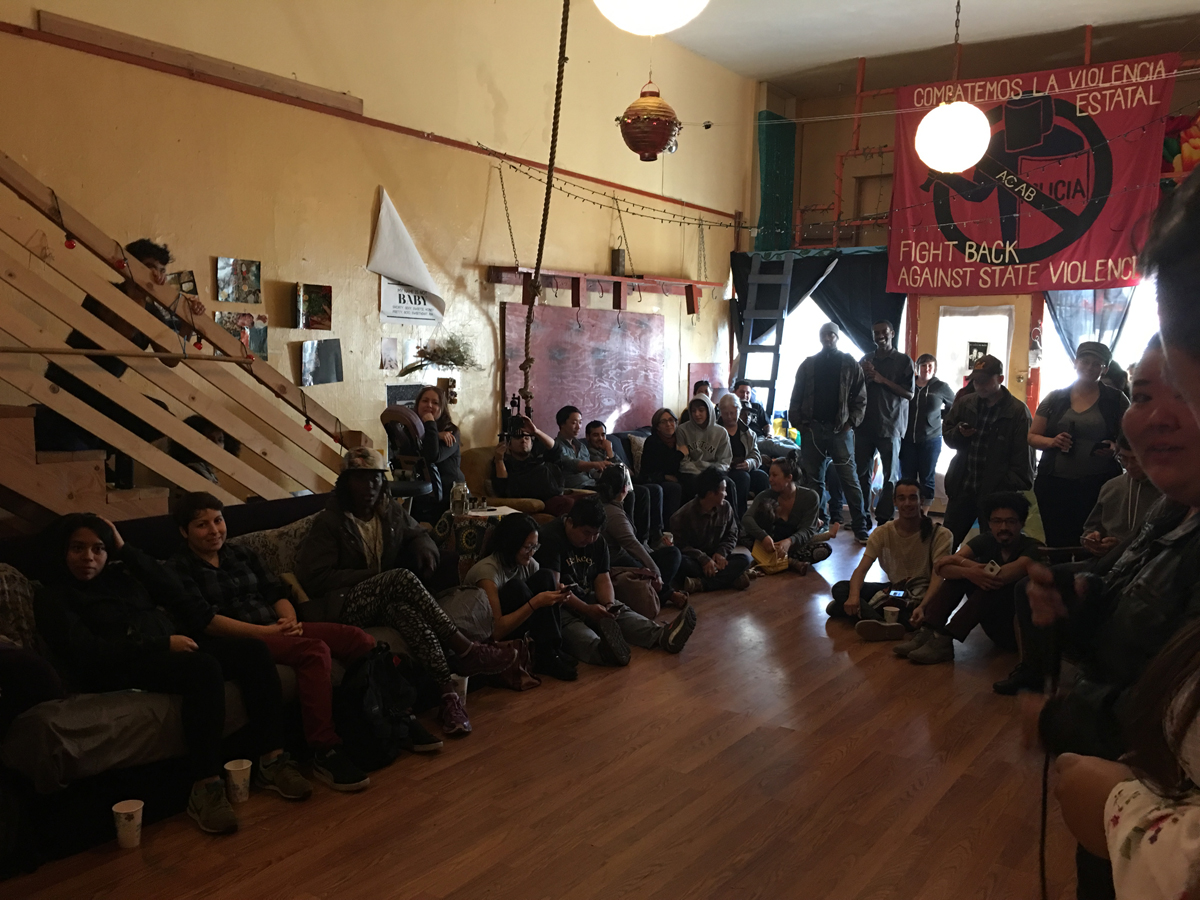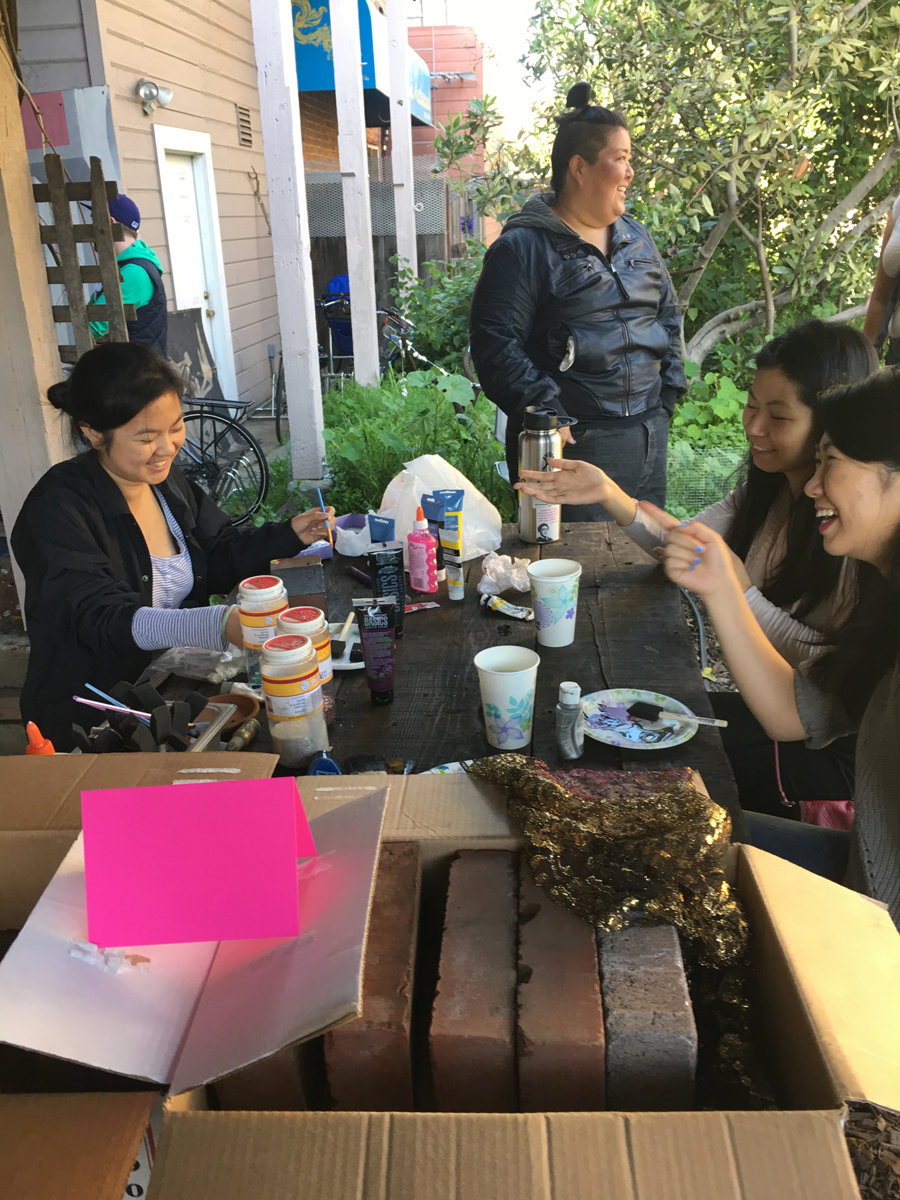A building on the corner of 23rd Avenue and International Boulevard has long been a stronghold of grassroots activism in East Oakland: Its tenants include The Bikery, the brick-and-mortar bike shop of the nonprofit Cycles of Change; Sustaining Ourselves Locally (SOL), an organization that teaches gardening skills and offers a low-cost event space; Liberating Ourselves Locally (LOL), a maker lab that offers equipment like industrial sewing machines and 3D printers on a donation basis; Shaolin Life, a martial arts studio; and Peacock Rebellion, an arts nonprofit that offers performance workshops to trans people of color.
“A lot of grassroots group organizing is happening on this block,” says Devi Peacock, the founder of Peacock Rebellion, adding that the tenants regularly collaborate on projects. Peacock Rebellion, for instance, hosts its performance workshops inside LOL. And the young people who come to fix their bikes at Cycles of Change are also welcome to hang out in SOL’s community garden.
The oldest of these organizations, Cycles of Change, has been a tenant in the building since 1998 and SOL, since 2003. SOL’s event space hosts meetings and events for organizations such as support groups for sex trafficking survivors and young women migrants from Central and South America. On the second and third floor of the building are eight low-cost residential apartments.
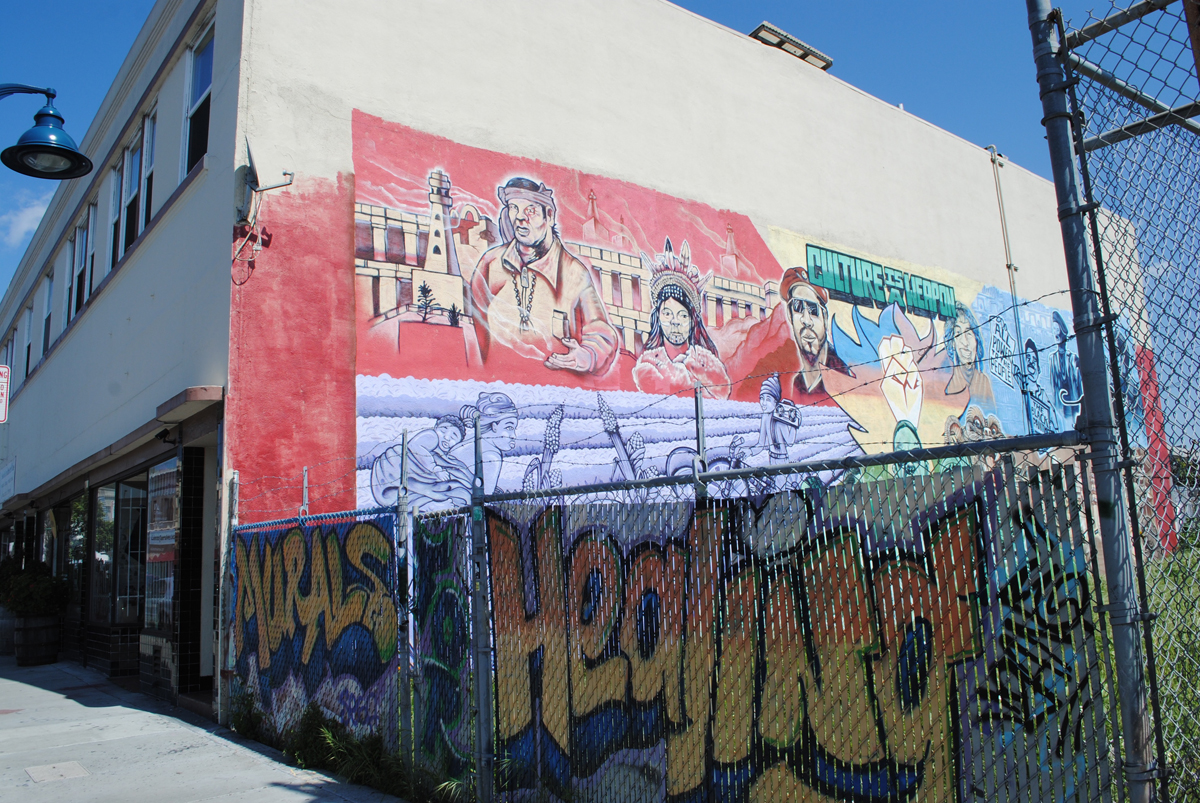
“There’s definitely folks, individuals who are overlapping in the spaces, like me,” says Eri Oura, one of the tenants leading the efforts to purchase the building. “I work for Cycles [of Change] and I live here. There’s other folks at Cycles who do a lot of projects in the building and on the block.”
The landlord of the 23rd Avenue building, Ming Cheung, wants to sell the 10,784-square-foot building and its adjacent 5,000-square-foot community garden, which the Alameda County Assessor’s Office values at $974,025 and $216,450 respectively. But according to Peacock, Cheung supports these organizations’ missions so much that she gave them the right of first refusal — meaning that if the tenants can raise funds for a $75,000 down payment by May 1, Cheung won’t put the building on the market.
